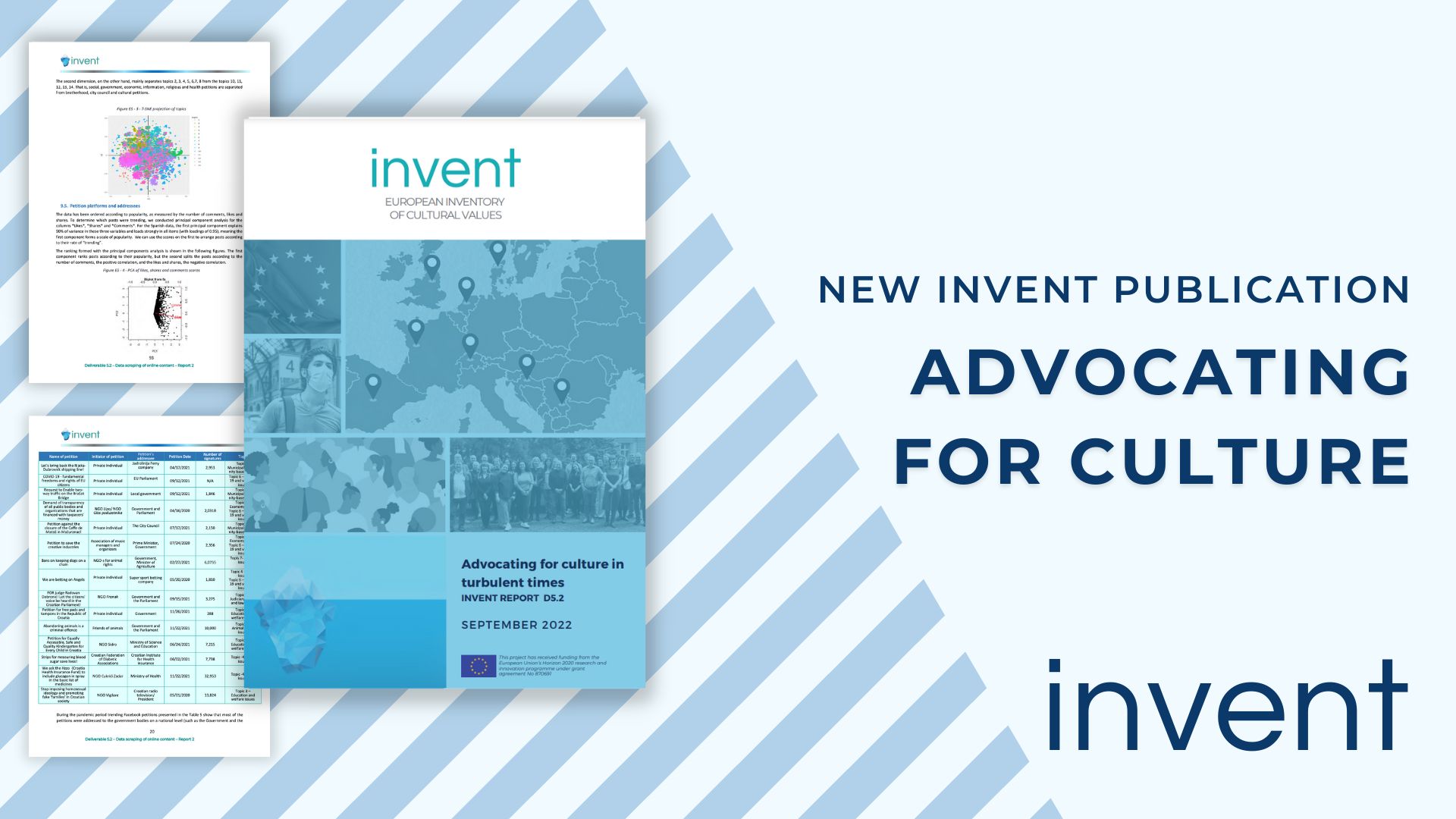INVENT’s data scraping team has recently completed its second annual report “Advocating for culture in turbulent times”.
Following phase I, which explored the various uses of the word “culture on the Twittersphere, our team decided to delve deeper for phase II. For phase II, we took a closer look at the question “What do people talk about when they talk about culture with the intention of making a difference or achieving a defined cultural goal?” As part of INVENT’s ethos of bottom-up approach, we chose to focus on petitions, as they hold potential for studying digital cultural participation from such approach. After examining Twitter for phase I, this phase was focused on petitions that are discussed on Facebook.
The analysis portrays a general overview of cultural issues discussed through petitions in the Invent partner countries. We identified seven themes pertaining to the most trending cultural issues discussed on Facebook through online petitions, both on supranational and national levels. (1)children and education, (2) social equality and human rights, (3) social inequality and rifts, (4)national/international rifts, (5) climate change/sustainability, (6) COVID-19 pandemic, and (7) popular culture. The differences between the countries are mainly embodied in the particular focus each country places within each theme. All countries are concerned with similar causes, but the ways citizens suggest tackling specific issues differ.
The report demonstrates that e-petitioning is a form of civil involvement that is prevalent in all investigated countries, albeit to different extents. While in many countries, governmental bodies are addressed on general e-petition platforms, where all sorts of topics, petitioners, and addressees can be found, other countries’ governments maintain their own e-petitioning platform. E-petitioning lowers the threshold of political participation and societal engagement for many people, especially compared to the traditional form of paper petitioning. We observed several affordances of e-petitions. Besides influencing policy and decision-making and changing a government’s course, e-petitions fulfil, amongst others, functions like the expression of dissatisfaction and frustration; forming or finding like-minded communities; or alerting others.
Our team is currently working on the third and last report which is closely linked to phase II. Watch this space to read about their country-based case studies, to be released in the next few months.



 This project has received funding from the European Union’s Horizon 2020 research and innovation programme under grant agreement No
This project has received funding from the European Union’s Horizon 2020 research and innovation programme under grant agreement No
Leave A Comment